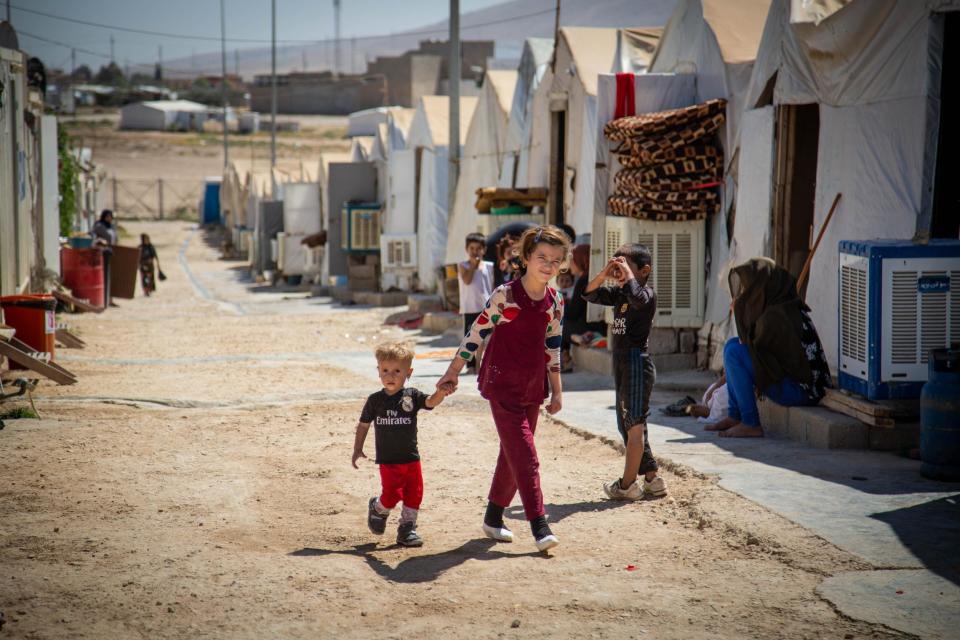Yazidi leaders issue ‘historic’ call for children of Isis rape survivors to return home
Yazidi leaders have ruled that the children of Yazidi mothers who were born as the result of rape by Isis fighters can now return home, reversing a controversial policy that sought to isolate them from their community.
Thousands of Yazidi women and children were taken captive by Isis in the summer of 2014, when the terror group carried out a murderous rampage against the small religious minority in their traditional homeland in northern Iraq.
During years of captivity, many women gave birth to children after being raped by their captors.
Due to the ancient religion’s strict adherence to its genealogical identity, those women were faced with an impossible choice when they finally escaped the clutches of Isis: abandon their child and return home, or live in exile and keep their children. Many chose to stay away.
The new ruling, issued by the Yazidi Supreme Spiritual Council, called on members of the faith “to accept all survivors and consider what they have been subjected to beyond their control”, including their children.
The decision was welcomed by Yazidi rights groups, many of which have been campaigning for reform on the issue.
“This decision is very important. We believe those women deserve to be returned back, including their children. They need our support, our respect and our help,” said Ahmed Khudida Burjus, the deputy executive director of Yazda, a Yazidi advocacy group.
Mr Burjus said there are potentially dozens of women who gave birth to the children of Isis fighters still in Syrian camps, too afraid to return to their historic home in northern Iraq because they may be forced to give up their child. Many others who returned have given up their children to orphanages — due to societal pressure or the because of the trauma of their experience.
But although the ruling could ease some of those fears, the community’s traditions and historic norms mean Yazidi women returning home with their children may still find resistance from within their own families.
“It is a closed religion. Traditionally, a Yazidi has to be from Yazidi mother and father,” said Mr Burjus. He added that although the decree may be a sign that things are changing, there will be a difficult road ahead.
In a historic move, the Yazidi Supreme Spiritual Council issues a statement to welcome all survivors, including women and their children born out of rape. We now hope to retrieve hundreds of women and their children from Syria. pic.twitter.com/frqvqyXBMU
— Murad Ismael (@murad_ismael)


